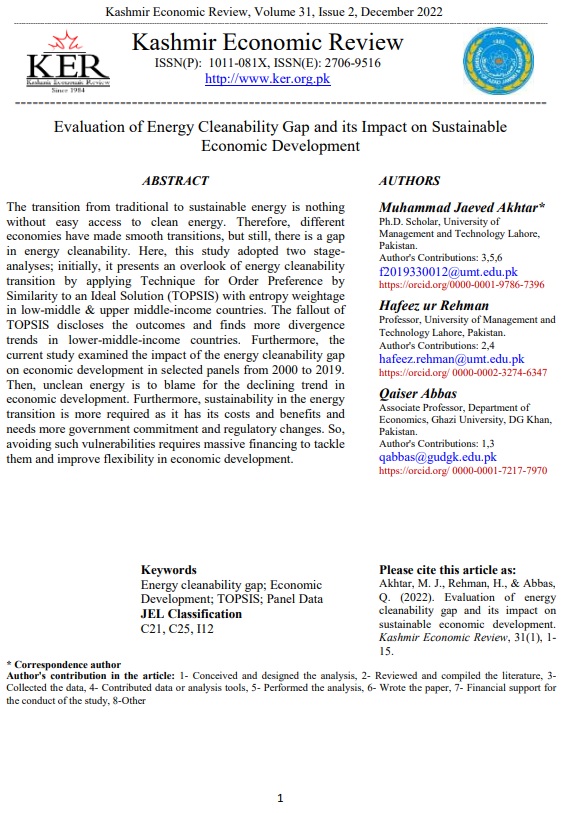Evaluation of Energy Cleanability Gap and its Impact on Sustainable Economic Development
##plugins.themes.bootstrap3.article.main##
Resumo
The transition from traditional to sustainable energy is nothing without easy access to clean energy. Therefore, different economies have made smooth transitions, but still, there is a gap in energy cleanability. Here, this study adopted two stage-analyses; initially, it presents an overlook of energy cleanability transition by applying Technique for Order Preference by Similarity to an Ideal Solution (TOPSIS) with entropy weightage in low-middle & upper middle-income countries. The fallout of TOPSIS discloses the outcomes and finds more divergence trends in lower-middle-income countries. Furthermore, the current study examined the impact of the energy cleanability gap on economic development in selected panels from 2000 to 2019. Then, unclean energy is to blame for the declining trend in economic development. Furthermore, sustainability in the energy transition is more required as it has its costs and benefits and needs more government commitment and regulatory changes. So, avoiding such vulnerabilities requires massive financing to tackle them and improve flexibility in economic development.
##plugins.themes.bootstrap3.article.details##

Este trabalho encontra-se publicado com a Licença Internacional Creative Commons Atribuição-CompartilhaIgual 4.0.

